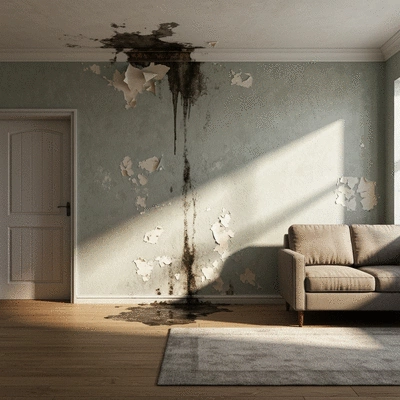Type of Tenancy
You must be a tenant, whether in a private rental, social housing, or other arrangements.
Unlock your FREE 'Quick-Start Guide to No Win No Fee Claims' and demystify the legal process.
Posted on: 2025-09-03
By: Sarah Thompson
Have you ever felt overwhelmed by the complexities of pursuing a housing disrepair claim? You're not alone. Many tenants struggle to navigate their rights and options. Understanding how No Win No Fee arrangements work can empower you to take action confidently.
Understanding who can utilize No Win No Fee arrangements is essential for anyone considering a housing disrepair claim. These agreements allow tenants to pursue legal action without the fear of upfront costs, making justice more accessible. But not everyone may qualify, so it’s crucial to clarify the eligibility criteria. For a broader understanding of how these arrangements work, you can read more about understanding No Win No Fee claims.
You must be a tenant, whether in a private rental, social housing, or other arrangements.
Your claim must relate to significant disrepair that impacts your health or well-being.
If you’ve reported the issue to your landlord and they failed to act, this strengthens your case.
Generally have stronger protections under housing law, making it easier to pursue claims.
Similar rights to council tenants but may face specific policies unique to their association.
While they can also pursue claims, the process may be more complex due to varying landlord responsibilities.
Have you ever felt frustrated because your rented home is in disrepair? If so, you're not alone! Many tenants face similar issues and may not realize they can pursue legal action without upfront costs through No Win No Fee agreements. Let’s dive into what this means for housing disrepair claims, making it easier for you to understand your rights.
The term No Win No Fee essentially means that if your housing disrepair claim is unsuccessful, you won’t have to pay your solicitor any legal fees. This arrangement removes the financial risk for tenants who might be worried about affording legal representation. If your claim is successful, however, a success fee may be deducted from your compensation.
Understanding this arrangement can significantly empower tenants, helping them feel more confident about pursuing their rights. It’s essential to clarify any terms with your solicitor before proceeding, ensuring you know exactly what to expect!
In the UK, housing disrepair claims are largely governed by the Landlord and Tenant Act 1985. This legislation provides a framework for tenants to seek justice when landlords fail to maintain the property in a safe and livable condition. For instance, if your home has serious issues like leaking roofs, mold, or faulty heating, you may have grounds for a claim. For more detailed information on this topic, you can refer to our guide on understanding housing disrepair claims.
Being aware of this legal framework can help you better understand your situation and the grounds for your claim. Always ensure to gather as much evidence as possible to support your case!
As a tenant, you possess several important rights when it comes to housing disrepair. These rights include the right to live in a property that meets health and safety standards, and the ability to request necessary repairs in a timely manner. It’s vital to familiarize yourself with these protections to ensure you stand firm in your claim.
Understanding these rights not only empowers you as a tenant but also enables you to take action if your landlord is not fulfilling their responsibilities. Remember, you don’t have to face this situation alone; we're here to help!
Landlords have a legal obligation to maintain their properties and ensure they are safe for tenants. This includes making necessary repairs within a reasonable timeframe. If a landlord fails to address housing disrepair issues, they may be held liable for any damages or inconveniences caused.
By recognizing these responsibilities, you can better advocate for your rights and hold your landlord accountable for any shortcomings. If you feel that your landlord is neglecting their duties, it might be time to explore your options for a no win no fee claim.
When pursuing a No Win No Fee claim, always keep detailed records of your communications with your landlord. This includes dates of repair requests, responses received, and any photographic evidence of disrepair. Having thorough documentation can significantly strengthen your case and ensure that your rights are protected.
Understanding who can utilize No Win No Fee arrangements is essential for anyone considering a housing disrepair claim. These agreements allow tenants to pursue legal action without the fear of upfront costs, making justice more accessible. But not everyone may qualify, so it’s crucial to clarify the eligibility criteria.
In general, to qualify for a No Win No Fee arrangement, you must be a tenant facing disrepair issues that affect your living conditions. This can include anything from leaks and mold to inadequate heating. Let’s delve into the specifics!
Not all tenants automatically qualify for No Win No Fee arrangements. Here are some key factors that determine eligibility:
As a tenant, it’s important to understand these requirements to ensure that your claim has the best chance of being successful. For those in Birmingham or the surrounding areas, we at Solicitors No Win No Fee are here to help clarify any doubts you may have!
The eligibility criteria can vary significantly depending on the type of landlord involved. Here’s a brief overview:
It’s essential to understand these differences, as they can influence both your rights and how you approach your claim. If you’re uncertain, seeking advice tailored to your situation is always a good idea!
Your tenancy agreement plays a crucial role in determining your eligibility for a No Win No Fee claim. Here’s what to consider:
Always review your tenancy agreement thoroughly and highlight any clauses related to disrepair. This will not only help you understand your rights but also prepare you for potential claims against your landlord. Remember, at Solicitors No Win No Fee, we’re dedicated to guiding you through this process! For further insights into building a strong case, explore our article on proving your housing disrepair claim.
Here is a quick recap of the important points discussed in the article:
No Win No Fee means you don't pay your solicitor's legal fees if your housing disrepair claim is unsuccessful. If your claim is successful, a success fee is typically deducted from your compensation, but there are no upfront costs to you.
Eligibility generally depends on being a tenant (private, council, or housing association), the disrepair significantly impacting your health or well-being, and your landlord failing to address reported issues. Your tenancy agreement also plays a role.
Landlords have a legal obligation under the Landlord and Tenant Act 1985 to maintain properties in a safe and livable condition. This includes promptly responding to repair requests, ensuring safety regulations are met, and addressing serious issues like leaks or structural problems.
Crucial evidence includes detailed records of communication with your landlord (dates of repair requests, responses), photographic or video evidence of the disrepair, medical reports if the disrepair affected your health, and any receipts for expenses incurred due to the disrepair.
Yes, private tenants can pursue housing disrepair claims under No Win No Fee arrangements. While the process might sometimes be more complex due to varying landlord responsibilities compared to council or housing association tenancies, you still have rights to a safe and habitable home.



 Did you know that many tenants are unaware of their rights regarding housing disrepair? Understandin
Did you know that many tenants are unaware of their rights regarding housing disrepair? Understandin
 In today's uncertain job market, knowing your rights when it comes to termination is more crucial th
In today's uncertain job market, knowing your rights when it comes to termination is more crucial th
 In the world of serious injury claims, navigating financial challenges can be daunting. Interim paym
In the world of serious injury claims, navigating financial challenges can be daunting. Interim paym